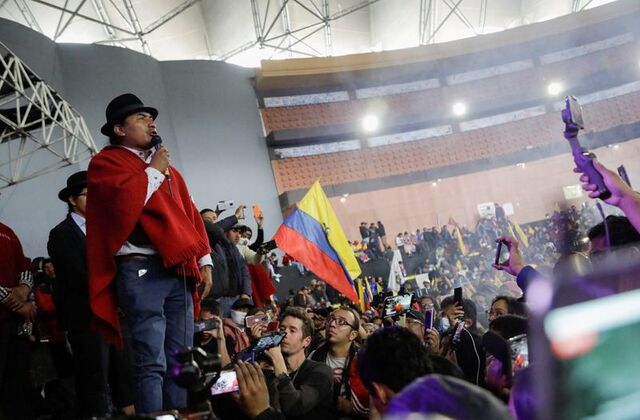QUITO, (Reuters) – Ecuador’s government and indigenous community leaders reached a deal yesterday, ending months-long talks that lead to dozens of agreements for implementing economic and environmental concessions, which President Guillermo Lasso made to end deadly protests in June.
Lasso, a conservative former banker, began negotiations in mid-July to establish how to enact his promises, which included price controls, debt forgiveness, and policies for the oil and mining sectors, among others.
The government reached 218 agreements with the indigenous communities, it said.
However, Leonidas Iza, president of the indigenous organization CONAIE, warned the agreements were just partial advances, with most failing to meet the requirements as laid out in June’s protests.
Demonstrations rocked Ecuador for more than two weeks starting June 13, leaving at least eight dead and severely affecting the country’s oil industry, its main source of income, forcing immediate cuts to fuel prices and bringing the government to negotiation tables.
“The dialogues were not the will (of the government), but by the pressure and force of the people in the streets,” Iza said after the talks closed.
One key agreement will see the introduction of a mechanism for differentiating fuel prices to ensure that subsidies only benefit the most vulnerable sectors of society, and not those who do not need it, the government said.
The talks also managed to define a moratorium for 15 oil blocks and suspended the granting of some mining concessions until there is a law establishing prior and informed consultation for communities living nearby.
Talks also reached deals to forgive certain debts for small-scale farmers and a socialized rate for telephone and internet services.
“The negotiations have proven to be more productive in achieving joint solutions than the protests,” said Ecuador’s Minister for the Government, Francisco Jimenez.






